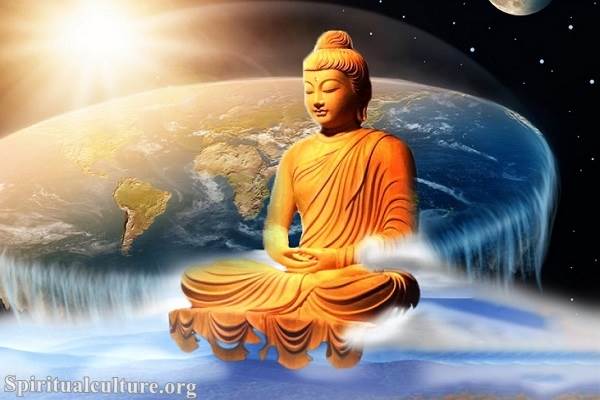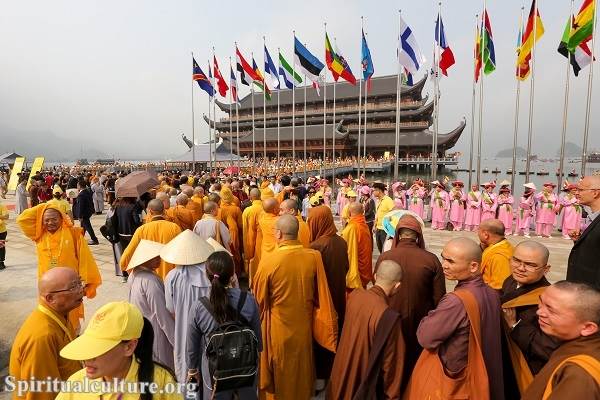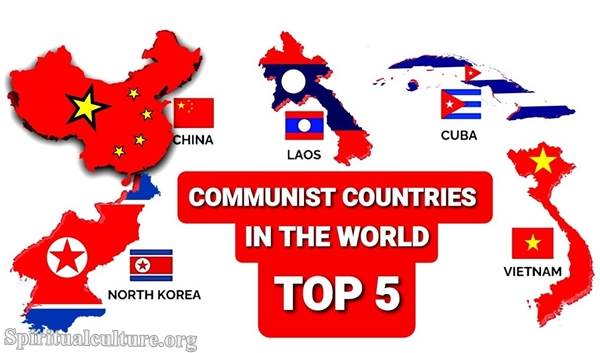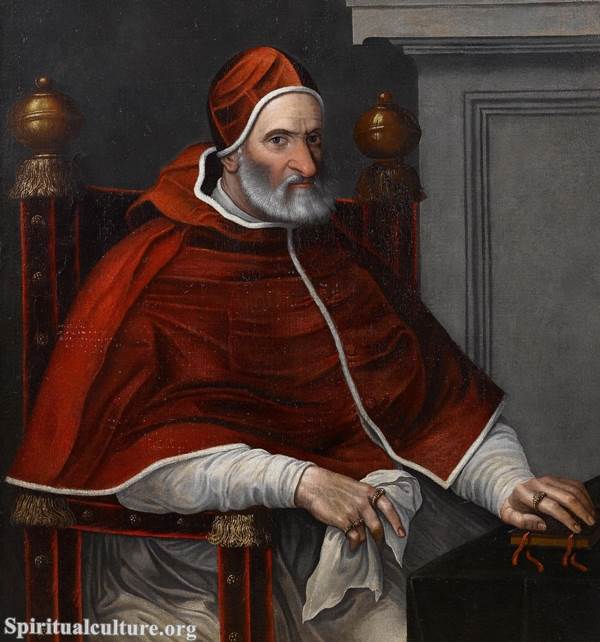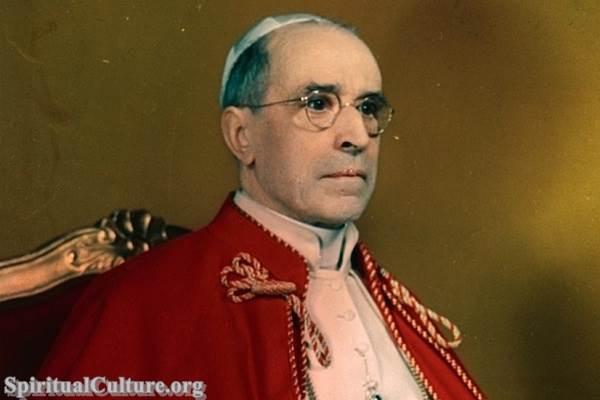The papacy, one of the oldest and most influential religious institutions in the world, has seen a profound evolution over the centuries.
In this article, Spiritual Culture will delve into the current pope’s identity, background, responsibilities, and impact on the world, while providing a comprehensive overview for readers interested in understanding the significance of this deeply rooted tradition.
Background Information
Historical Context of the Papacy
The papacy has a rich history dating back to the early Christian church. The first pope is traditionally recognized as Saint Peter, one of Jesus Christ’s apostles. Following Jesus’ crucifixion, Peter became the leader of the early Christian community in Rome, establishing a legacy that lasted for nearly two millennia. Over the years, the role of the pope has evolved from that of a religious leader to a crucial figure in global diplomacy, moral guidance, and social issues.
The Middle Ages solidified the Pope’s power, particularly during the reign of Pope Gregory VII (1073-1085), who asserted papal authority over secular rulers. The Great Schism of 1054 marked a division between the Roman Catholic Church and Eastern Orthodoxy, further shaping the papacy’s role in the Christian world. The Protestant Reformation in the 16th century challenged papal authority, leading to a shift in religious dynamics in Europe and ultimately leading to the modern pluralistic context of Christianity today.
The Role of the Pope in the Catholic Church
Today, the Pope serves as the Bishop of Rome and spiritual leader of over a billion Catholics worldwide. His primary roles include providing guidance on matters of faith and morals, articulating church teachings, and representing the Vatican in international affairs. The Pope is seen not only as a religious leader but also as a symbol of unity among Catholics. His decisions and statements can influence social, political, and ethical discussions on a global scale.
Current Pope Details
Name and Title of the Current Pope
As of 2024, the current pope is Pope Francis, born Jorge Mario Bergoglio on December 17, 1936. He is the 266th pope in the history of the Catholic Church and took office on March 13, 2013. Pope Francis’s election marked a historic moment, as he became the first pope from the Americas, hailing from Argentina. He also bears the distinction of being the first Jesuit pope and the first pope to choose the name Francis, inspired by Saint Francis of Assisi, who epitomized humility and a deep concern for the poor and marginalized.
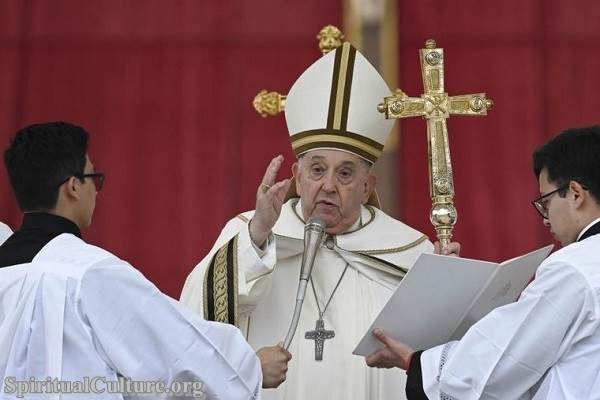
The current Pope – Pope Francis
Biographical Overview
Pope Francis was born to Italian immigrants in Buenos Aires, Argentina. He studied humanities at the Colegio de San José and later earned a degree in philosophy and theology. He entered the Society of Jesus, or Jesuit order, in 1958 and was ordained as a priest in 1969. Over the years, he served in various capacities, including teaching, pastoral work, and engaging in social issues in Argentina.
In 2001, he was appointed as the Archbishop of Buenos Aires and was made a cardinal in 2001 by Pope John Paul II. His tenure as a bishop was marked by a commitment to serving the poor and addressing social justice issues. These experiences would later shape his papacy, where he emphasized the need for a more inclusive church that prioritizes the marginalized.
Age and Health Status
Pope Francis is currently 87 years old. His health has been a matter of public interest, especially considering he underwent surgery for colon cancer in July 2021. Although he has faced challenges relating to mobility, including issues with his knee that necessitated the use of a wheelchair for a time, he remains active in fulfilling his papal duties. The Vatican has communicated that he is in stable condition, continuing to prioritize his role as pope despite the challenges posed by age and health.
Papal Responsibilities
Key Duties and Functions
The Pope’s responsibilities are manifold. He serves as a leader, pastor, and teacher to Catholics around the world. Key duties include:
- Administration of the Sacraments: The Pope has the authority to administer sacraments, including confirmation and holy orders.
- Teaching Authority: As the supreme teacher of the Church, he issues doctrines and teachings that are binding for all Catholics.
- Governance: The Pope oversees the governance of the Church, including appointment of bishops and cardinals.
- Ecumenism: Promoting unity among different Christian denominations is a vital aspect of the papacy.
- Interfaith Dialogue: The Pope engages in dialogues with leaders of other faiths to promote peace and mutual understanding.
Papal Encyclicals and Teachings
Pope Francis is known for his impactful encyclicals – formal letters addressing significant theological and social issues. Key documents include:
- Lumen Fidei (2013): Focused on the theme of faith as a guiding light for humanity.
- Laudato si’ (2015): Addressed environmental issues and called for a collective response to climate change, emphasizing the moral obligation of caring for our planet.
- Fratelli tutti (2020): Focused on fraternity and social friendship, advocating for global solidarity, especially in light of the COVID-19 pandemic.
Major Initiatives and Goals
Pope Francis has articulated several initiatives aligned with his vision for a church that is more engaged with social issues. These include:
- The Synod on Synodality: Launched to encourage a more participatory model of governance in the Church, allowing laypeople, especially women, a greater voice.
- Focus on Social Justice: There is an ongoing emphasis on issues such as poverty, immigration, and the dignity of workers, making these central to his vision of a global Catholic community.
- Promotion of Interreligious Dialogue: Aiming to foster peace and collaboration among various faiths, the Pope has made numerous visits to other religious communities.
Recent Activities
Apostolic Journeys
Pope Francis has undertaken numerous apostolic journeys that reflect his commitment to global issues. Significant trips include:
- Visiting Iraq (2021): The first papal visit to Iraq, aimed at promoting peace and providing support to the Christian community amidst ongoing conflict.
- Trip to Canada (2022): To apologize for the Catholic Church’s role in the residential school system that harmed Indigenous peoples.
- Pilgrimage to South Sudan (2023): Focusing on peace initiatives and the importance of reconciliation in a nation plagued by civil strife.
Synodal Events and Meetings
The Holy Father has catalyzed synodal events that emphasize listening to the voices of the laity. This process is intended to cultivate a culture within the Church that fosters participation and shared responsibility for the mission of the Church.
Messages and Speeches
Through his public addresses, Pope Francis consistently emphasizes themes of mercy, compassion, and inclusion. His speeches often touch on urgent global issues, such as human rights, climate change, and the plight of refugees. He encourages dialogue, reconciliation, and active engagement from the Catholic community.
Global Impact
Influence on Catholic Communities Worldwide
Pope Francis’s tenure has significantly influenced Catholic communities across the globe. His approachable demeanor and emphasis on humility have resonated with many, fostering a more inclusive and engaging church culture. His teachings challenge Catholics to reflect on their social responsibilities and engage actively in their communities.
Engagement with World Leaders
The Pope’s diplomatic engagements with world leaders have made him a key figure in addressing global issues. He has met with presidents, prime ministers, and international organizations to advocate for peace, climate action, and social justice. His moral authority often serves to highlight the ethical dimensions of political decisions.
Addressing Global Issues
Pope Francis has not shied away from addressing pressing global challenges, such as:
- Climate Change: Through his encyclicals like Laudato si’, he has called for urgent action against environmental degradation, urging nations and individuals to cultivate a sustainable future.
- Refugee Crisis: He has advocated for a compassionate approach to refugees, emphasizing human dignity and the need for solidarity with displaced people.
- Poverty and Inequality: Addressing the structural causes of poverty, he urges a commitment to social justice and prioritizing the needs of the most vulnerable in society.
Conclusion
Future Directions for the Papacy
Looking forward, the papacy may continue to evolve in response to contemporary challenges. With ongoing discussions around synodality, Pope Francis’s vision of a more participatory Church could shape future governance and community engagement. His focus on social justice will likely remain paramount as the Church seeks to address emergent global concerns.
Legacy Considerations
As Pope Francis approaches the latter part of his papacy, his legacy is marked by a commitment to compassion, humility, and a focus on the marginalized. His groundbreaking approach to issues such as the environment, social justice, and interfaith dialogue positions him as a transformative leader in the Catholic Church’s history. Pope Francis’s impact will undoubtedly resonate for generations to come, as he challenges the Church to remain relevant in a rapidly changing world.
In conclusion, Pope Francis serves as a beacon of hope for many, advocating for a Church that embodies the love and mercy of Christ and actively engages with a world in need, fostering peace, justice, and unity among all people.
